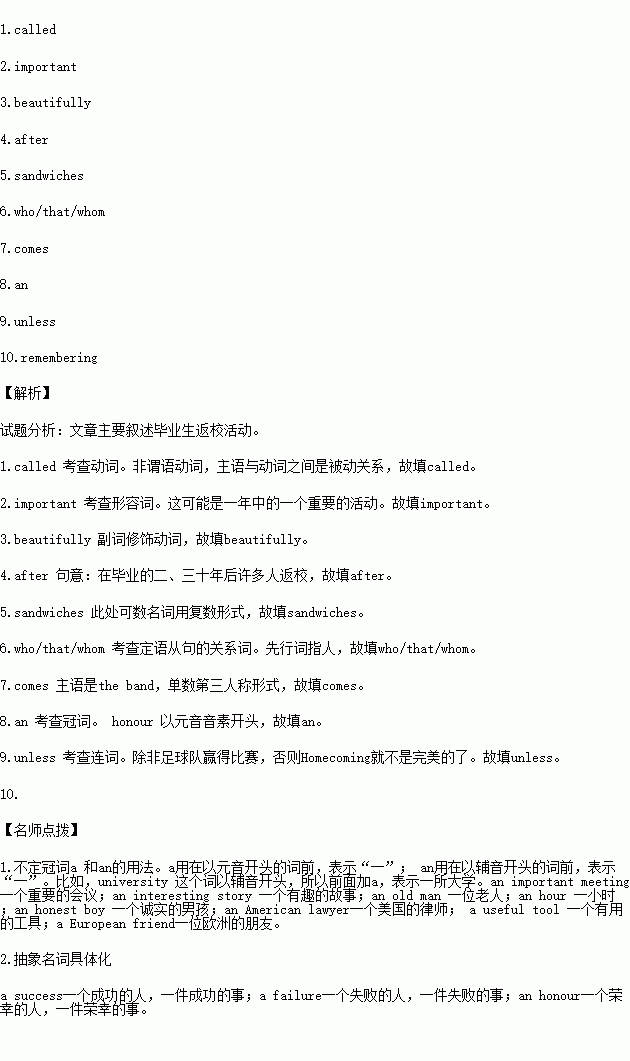题目内容
In American schools there is something 1. (call) Homecoming Day. Many high schools and colleges with a football team have a homecoming game. This can be an 2. (importance) event of the year except graduation ceremony——students plan Homecoming Day for many weeks in advance. Several days before Homecoming,students start to 3. (beautiful)decorate the school. There are signs to wish luck to the team,and many other signs to welcome the graduates. Many people still come to Homecoming twenty or thirty years 4. their graduations.
The members of school clubs build booths(摊位)and sell apples and 5. (sandwich). Some clubs help to welcome visitors.
During the day people like to look for teachers 6. they remember from long ago. Often they see old friends and talk about their happy years in school.
Everyone watches the football game. When the game is half over,the band(乐队) 7. (come) onto the field and plays school songs. Another important moment is when the Homecoming Queen or King appears. All the students vote the most popular student Homecoming Queen or King. It is 8. honour to be chosen.
Homecoming is a happy day but it is not perfect 9. the football team wins the game. Even if the team loses,the students still enjoy Homecoming. Some stay at the school to dance and others go to a party. For everyone it is a day worth 10. (remember).

